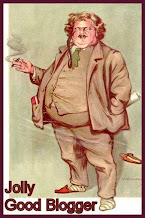Dermed har vi det interessante og oppløftende fenomen at det ikke lenger er en helbredelses- og herlighetsforkynnelse - eller for den slags skyld mer eller mindre überskeptisk og/eller jødefobisk tysk tradisjon fra før 1940 - som påvirker paradigmene, men en mer elegant og engasjerende britisk tradisjon, fra C.S. Lewis til N.T. Wright.
First Things kommenterer utviklingen og linker til en lengre artikkel nederst.
Worthen notes that, in addition to the late John Stott, evangelicals seem to naturally gravitate toward theologians from British Isles. Though these persons of interest are genuinely important thinkers, and more than worthy as apologists, philosophers, and fiction writers, there does seem to be a certain additional mystique attached to their nationality:Hva er så bakgrunnen? Skyldes det at amerikanerne føler seg intellektuelt mindreverdige? At Oxbridge klinger mer overbevisende enn Oklahoma? At pipe og tweed er bedre enn pie og jeans?
American evangelicals' fondness Stott is part of a larger pattern, a special affection for Christian gurus of British extraction. Droves of American evangelicals stock their shelves with books by British Christian scholars such as N.T. Wright, a professor of New Testament and the former bishop of Durham, and J.I. Packer, a British-born theologian at Regent College in Vancouver. Despite ancient hostility toward Roman Catholicism, American evangelicals lionize the British Catholic writer G.K. Chesterton and raise their children on Catholic J.R.R. Tolkien's Lord of the Rings trilogy.
I suspect a more likely explanation for why American Evangelicals love the Brits is related to the reason we love the Jews: We believe that we share with these groups a historical and theological imagination.Den lengre artikkelen som omtales finnes her.























